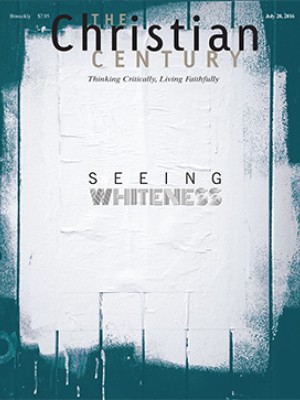Interfaith Kosovo gathering builds on area’s historic Muslim-Jewish friendship
Three years ago, Joshua Stanton was walking around Peja, a Balkan city where the skyline includes the minarets of three historic mosques, when he decided to put on his yarmulke.
“I am Jewish,” he thought. “I want to put it on.”
This was not something he would do in France, Germany, or other places where anti-Semitism is on the rise. But Stanton, a young rabbi visiting from New Jersey, felt different in this region.
The reaction from people in the street—most of them Muslims—astonished him. People came up to him, grabbed him by the hand, asked where he was from, and welcomed him to their country.
“Are you Jewish?” they asked. “We love the Jews. Israel helped us rebuild after the war.”
Stanton had gone to Kosovo, a small, eight-year-old country with a population that is 97 percent Muslim, to attend Interfaith Kosovo, an annual gathering of leaders from around the world.
This year, he returned to the gathering, held recently in the capital of Pristina, with ten companions who came as the country’s guests. Like Stanton, who is 30, all are young Jews from New York or New Jersey who are interested in interfaith relations.
“Interfaith dialogue in the U.S. is stuck in the framework of the Israel-Palestinian conflict,” Stanton said. “So the hope in going to Kosovo is to give this group of young Jewish leaders a chance to imagine what Muslim-Jewish relations can be in the U.S. and then to come back and improve those relations in the New York area.”
Read our latest issue or browse back issues.
Jews have lived in the Kosovo region since Roman times. Many more migrated to the region in the Middle Ages as they were expelled from places such as Spain. During World War II, Kosovo—then part of Albania—refused to turn over its Jewish residents to the invading Nazis for deportation. Many were hidden by local Albanian families—Muslims, Catholics, and Serbian Orthodox Christians—and sheltered by local governments. More than 2,000 Jews survived the Holocaust in Kosovo and Albania.
But with the rise of communism in 1946, when Kosovo became part of Yugoslavia, many Jews departed. Today, there are fewer than 100 Jews in Kosovo, according to a 2013 report in the Forward, a U.S.-based Jewish newspaper.
The Yugoslav government tore down the last synagogue in Kosovo in 1963. Today it is the site of a parliament building, its courtyard holding a memorial pledging not to forget Kosovo’s Jews who died in Nazi camps.
In 1998 conflict began between Albanians and Serbs over the land that is now the Republic of Kosovo. Neighbors killed neighbors, often targeting them for their religion or ethnic identity.
Kosovo’s population now is overwhelmingly ethnic Albanian; Serbs have mainly emigrated to Serbia and elsewhere. The shell of a large Serbian Orthodox church stands amid weeds a few blocks from where the interfaith conference took place.
To some Jewish people, the conflict, which persists because Serbia refuses to recognize Kosovo as a nation, resonates as familiar.
“Kosovo has the feel of Israel in some ways,” said Michael Sherman, a 29-year-old trip participant who works in real estate. “It’s a young, new country that’s really eager and rightfully so since they fought for so long for independence.”
Interfaith Kosovo bolstered Sherman’s confidence in the ability of Muslims and Jews to coexist and thrive.
Sherman helped Stanton recruit trip participants from Tribe, a service and social group for young Jews in New York City. They mainly identify as Conservative Jews, though not all attend synagogue regularly.
Seated around a large, circular table among the 300 conference attendees from 56 countries, they listened to Shirin Ebadi of Iran and Tawakkol Karman of Yemen—Muslim women who are Nobel Peace Prize laureates—speak with urgency about fundamentalists.
“Instead of throwing bombs at them, we should be throwing books at them and building schools,” Ebadi said after her address. “Then you will see that fundamentalism will be eliminated.”
Ebadi’s speech was one of many parts of the conference that sparked ideas for outreach to the Muslim and Jewish communities in New York, such as an interfaith soccer program.
Tribe members came to Interfaith Kosovo at the invitation of Petrit Selimi, Kosovo’s deputy minister of foreign affairs, who befriended Stanton three years ago, even attending a shabbat dinner the rabbi presided over in a Pristina restaurant.
“New York City is best positioned to remember terror but also to promote tolerance, cooperation, and cross-faith links between peoples,” Selimi said. “Kosovo is secular and New York is secular, but we have a role to play in fortifying the communal identities and continuous interfaith dialogue.”
Two weeks before Tribe members left for Kosovo, the New York Times published a front-page story, “How Kosovo Was Turned into Fertile Ground for ISIS,” reporting that more than 300 Kosovars have traveled to join the Islamic State group, or ISIS—more than any other nation, per capita, in Europe. The article described a gathering of fundamentalist Muslims near Bill Clinton Boulevard, a main thoroughfare through Pristina.
“It is unfair to judge a country by a small number of its citizens,” Kadri Veseli, chairman of Kosovo’s Assembly, told the conference. “It is the time to show the extremists that religions are a value and not their tool.”
Tribe members, who traveled through Kosovo, Montenegro, and Serbia before the conference, said the Times story did not match their impression of the region.
“One thing my mom said to me a long time ago that resonates here is that other people of faith usually respect you in your faith,” said Sarah Fried, 28. “I definitely feel that here. It feels so comfortable to say, ‘I am here because I am a Jew.’” —Religion News Service
This article was edited on July 5, 2016.






